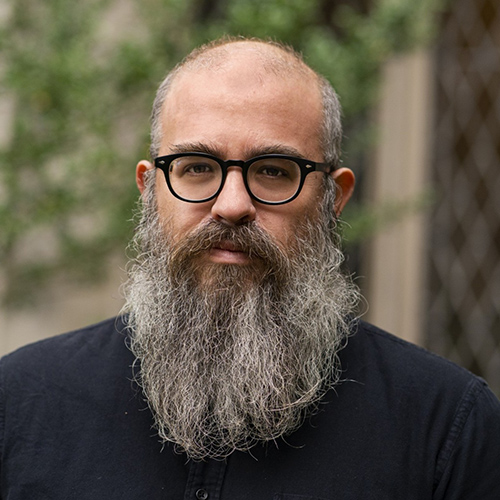
The topic of Mishory’s talk stems from his PhD Dissertation at Columbia University’s Department of Religion, which is devoted to several ‘secular’ books printed in the 15th and 16th centuries by Jewish printer Gershom Soncino. He has researched the reception and description of these books in the late-19th and early-20th-century discourse of Jewish Bibliography, following the question of how their ‘Jewishness’ has been classified and understood. How has the description and classification of early printed material since the Wissenschaft des Judentumsmoment of the 19th century treated Gershom’s ‘Jewishness’? In presenting the history of writing on early Jewish printing, Mishory will treat Jewish Bibliography less as a discourse set up to reveal already-known ‘Jewish’ material and an already-formed Jewish identity, but as one that in fact constitutes both.
Ishai Mishory is a PhD Candidate at Columbia University’s Department of Religion. His Dissertation, about five ‘secular’ books printed by Jewish-Italian printer Gershom Soncino around the turn of the 16th century, combines Jewish Studies, books history and art history. He was has been a Fulbright Scholar in Italy, where he conducted research for it, as well as a Research Fellow at the Center for Jewish History (New York City), a Dissertation Fellow of the Institute for Religion and Public Life and a Fellow of the Institute for Israel and Jewish Studies, both at Columbia University. He published an article on the design of Hebrew letters for a Hebrew/Yiddish culture magazine in In geveb, an online academic Yiddish culture journal, and has presented his research at a recent symposium on the Jewish Book at Hebrew Union College (Cincinnati), at the annual meetings of the Association for Jewish Studies, the American Academy of Religion and The Sixteenth Century Society, at École normale supérieure (Paris) and at a symposium at the Folger Library (Washington, DC). A longtime academic translator, he has also illustrated several children’s books.

Adam Shear is Associate Professor and Chair of the Department of Religious Studies at the University of Pittsburgh. He has published on Jewish thought in the early modern period and the Enlightenment, early modern Jewish book culture, and Jewish-Christian relations. His first book, The Kuzari and the Shaping of Jewish Identity 1167-1900 (Cambridge University Press) was the winner of a National Jewish Book Award for Scholarship and the Morris D. Forkosch Award for the best first book in intellectual history (awarded by the Journal of the History of Ideas). Shear has held visiting fellowships at the Katz Center for Advanced Judaic Studies (University of Pennsylvania) and at Magdalen College (University of Oxford). He was the founding convenor of the Scholar’s Working Group on the History of the Jewish Book at the Center for Jewish History in New York and has served as a member of the Center’s Academic Advisory Council. Along with colleagues from Columbia University, the Jewish Theological Seminary, and the University of Pennsylvania, Shear is co-director of Footprints: Jewish Books Through Time and Place a long-term digital humanities project focusing on the circulation and movement of early printed Hebrew and Jewish books.
